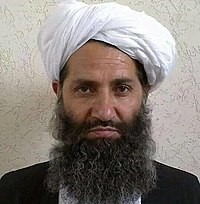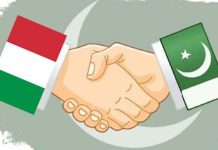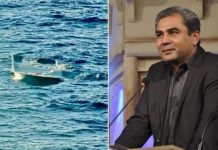DNA
ISLAMABAD: Mawlawi Hibatullah is a hardline religious scholar and the leader of the Taliban. As of August 16, 2021, Akhundzada is said to be the de facto Military Leader/President of Afghanistan, due to the “official” president, Ashraf Ghani’s departure from Afghanistan’s presidential palace.
Akhundzada reportedly issued the majority of the Taliban’s fatwas, and was the head of the Taliban’s Islamic courts. Unlike many Taliban leaders, Akhundzada is believed to have remained in the country during the War in Afghanistan. He became the leader of the militant group in May 2016 following the killing of the previous leader, Akhtar Mansour, in a drone strike. The Taliban also bestowed upon Akhundzada the title Emir-al-Momineen (Commander of the Faithful) that his two predecessors had carried.
Akhundzada was born in 1959 in the Panjwayi district of Kandahar Province in the Kingdom of Afghanistan. A Pashtun, he belongs to the Noorzai clan or tribe. His first name, Hibatullah, means “gift from Allah” in Arabic. His father, Mullah Mohammad Akhund, was a religious scholar as well as the imam of their village mosque. Not owning any land or orchards of their own, the family depended on what the congregation paid his father in cash or in a portion of their crops. Akhundzada studied under his father.[citation needed] The family migrated to Quetta after the Soviet invasion and Akhundzada continued his education at one of the first seminaries established in the Sarnan neighborhood.
In the 1980s, Akhundzada was involved in the resistance against the Soviet military campaign in Afghanistan.[6] When the Afghan Taliban captured the capital Kabul in 1996, one of religious scholar Akhundzada’s first jobs was in Farah Province as a member of the Department of the Promotion of Virtue and the Prevention of Vice paramilitary enforcers.[citation needed] He later moved to Kandahar and was made an instructor at the Madrasa, the seminary of about 100,000 students that Mullah Omar personally looked after.[citation needed]
Mawlawi Akhundzada was later appointed as Chief Justice of the Shariah Courts of the Islamic Emirate of Afghanistan. Rather than a warlord or military commander, he has a reputation as a religious leader who was responsible for issuing most of the Taliban’s fatwas and settling religious issues among members of the Taliban. Both Mullah Omar and Mullah Mansour are known to have consulted Akhundzada on matters of fatwa. Unlike his predecessors who were educated in Pakistan—and who were also believed to have moved permanently east across the Durand Line after the U.S. invasion in 2001 and during the resulting war—Akhundzada is believed to have lived in Afghanistan throughout the 2001–2016 period with no travel record, though he has close ties with the Quetta-based Taliban Shura.
After his promotion to deputy leader of the Taliban in 2015, Akhundzada put in place a system under which a commission would be formed under the shadow governor in every province that could investigate abusive commanders or fighters, according to Mullah Abdul Bari, a Taliban commander in Helmand.
khundzada was appointed as the Taliban supreme commander on 25 May 2016 as the replacement for Mullah Akhtar Mansour. Mansour and a second militant were killed when munitions fired from a drone hit the vehicle in which they were riding. The strike was approved by U.S. President Barack Obama. Akhundzada was previously a deputy for Mansour. According to sources from the Taliban, Mansour had already named Akhundzada as his successor in his will.
A Taliban spokesman stated that Sirajuddin Haqqani was named first deputy and Mullah Mohammad Yaqoob, the son of former Taliban leader Mullah Omar, was named second deputy. Mawlawi Akhundzada leads a number of madrassas, or religious schools, in Pakistan’s southwestern Balochistan province. Analysts believe that there were differences among Taliban ranks on who should be appointed the new chief. The suggested names were Mullah Yaqoob and Sirajuddin Haqqani, the latter being the most prominent member linked with the Haqqani Network. Akhundzada, however, has sustained a neutral identity among the Taliban rank and file. To avoid conflict upon choosing Akhundzada as chief, the Taliban agreed that Yaqoob and Sirajuddin Haqqani will both work as his deputies.

















